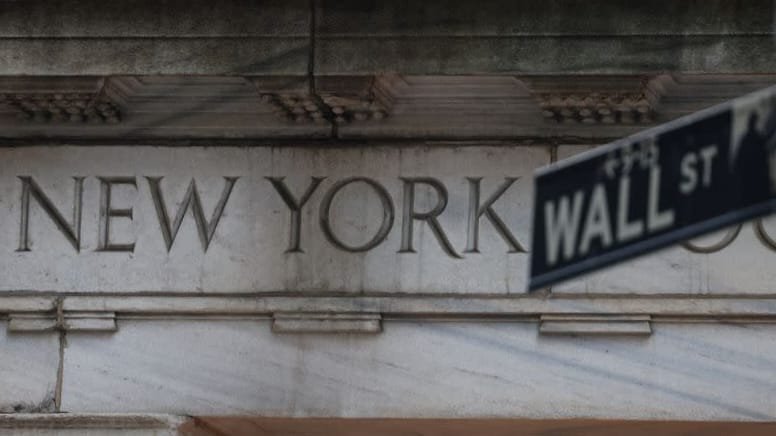
Traders on the Wall Street floor react as financial stocks fall sharply amid growing economic uncertainty.
Introduction: What Happened and What the News Says Wall Street stocks slide
Today’s headline is “Wall Street falls as financial stocks slide”—that is, major Wall Street stocks are falling, and financial sector stocks in particular are under intense pressure. Reuters reports that the S&P 500’s financial sub-index fell nearly 2%, and the insurance companies index fell nearly 3.5%. The regional banks index fell more than 4.5% as Zions Bancorp announced a $50 million loss on its California commercial loans. This caused investors to retreat from risk assets and increased volatility.
The market was in the midst of a downturn; financial stocks were particularly under pressure investors were experiencing uncertainty and fear; and hopes of a rally were fading. I will now analyze this entire event (1) from a market-based perspective, (2) from a psychological perspective, and (3) in terms of future prospects and policy insights. This way, you’ll understand not only what happened, but also why—all through the lens of the “human mind,” how it perceives and perceives it.
Economic and Financial Causes on Wall Street stocks slide
When the stock market falls, especially financial stocks, there are usually many complex reasons behind it. I’ll break them down into key points below. Banks and financial companies face credit risk, such as Zions Bancorp, which reported assuming a $50 million loss on its California commercial and industrial loans. If banks are lending, and some borrowers fail to make timely payments, their interest income decreases, and their loan loss provisions increase. Regional banks are particularly vulnerable because they may have lower capital and limited risk-management capabilities. Pressure on Insurance Companies The insurance sub-index fell by approximately 3.5%. A large portion of insurance companies’ income comes from investments and premiums. When financial markets are volatile, their investment income is affected. If interest rates are volatile, and if the Federal Reserve (US central bank) may raise rates further in the future, investors may already be considering “higher rate concerns.
Irritants such as foreign trade tensions, political instability, or tax policy changes directly impact the financial sector because banks actively engage in lending, borrowing, and risk management, all of which closely link to external economic conditions. Market Revaluation and Profit-Taking: After a period of bullishness in the markets, investors tend to sell their shares and take profits—this is a natural process. The report also states that the US government shutdown is delaying the release of economic data.
The Human Brain and Psychology—How This Event Affects Our Mental State
See how the average investor, a casual reader, or a potential shareholder views and feels this situation. First, fear arises. The investor wonders: “Is my capital safe?” Uncertainty increases. It becomes difficult to predict the future—what will the profit prospects be? The mind begins to believe that “there could be another downturn,” and so it rushes to find safe solutions (sell, liquidate). If news reaches people that several financial institutions are under pressure, many start selling together—“herding”—so as not to be left behind. People might say: “Everyone is selling, so I should sell too.”
This decision is driven less by logic and more by emotion. Critical thinking dulls. Under this pressure, many people reduce “due diligence.” They rely on news headlines, perform less analysis, and flee as soon as a decline is noticed. A kind of “lack of courage” arises—people act hastily to avoid major losses. Risk-seeking vs. Risk-averse. Some investors view this decline as a “buy-the-buck” opportunity—they think that when stock prices are low, there will be an opportunity to make a comeback. But most people lean toward capital protection, that is minimize losses.
This is the psychological conflict: the desire for profit versus the fear of loss. Decision paralysis. When markets change rapidly, it becomes difficult for the mind to decide, “What to do next?” There are too many options (sell, hold, buy), and too little time for analysis. This can lead to “decision paralysis,” leaving many people inactive—doing nothing, but missing opportunities. Expectations & Narratives The human mind creates narratives. If the market is falling, the narrative might be: “The next recession is coming,” or “The big flood is coming.” And if there is a small correction, it is not seen as a “rally,” but rather as a “short-term relief.” Thus, investors adjust their outlook.
Strategy, Policy, and the Way Forward
When markets are volatile like this, investors, policymakers, and analysts must proceed with caution. Below, I offer some suggestions and possibilities. Take a long-term perspective. If you’re an investor, have a long-term plan (5–10 years). Market cycles will change over time. Try to ignore short-term fluctuations during downturns—if the company is strong. The advice “don’t sell in a panic” applies here. Diversification and Hedging. Don’t put all your capital into just financial stocks or a single sector. Have a diverse portfolio of assets (stocks, bonds, gold, real estate). If possible, use hedging (derivatives, options, insurance products) to protect against large declines. Risk Management and Stop-Loss When investing, determine a “to lose” amount—the amount you can afford to lose. Stop-loss orders (which automatically sell if a stock goes down) should be used. Investors should regularly rebalance their asset allocation according to market risk.
If a bank or several banks are under pressure, a “crisis resolution” plan should be in place to avoid a loss of confidence. Gradual Entry and “Dollar-Cost Averaging”: If you must enter after a downturn, don’t invest a large sum at once. Invest gradually—some now, some later. And follow that rule. Practice controlling emotional impulses—don’t give in to the “sell urge” immediately; think and analyze first. Paying Attention to Signals – “Reversal Signals” If financial stocks begin to form support levels—such as not consistently closing at lower levels—this could signal a bounce. Bank loan losses begin to improve, or insurance companies begin reporting strong reports—these are signs that pressure may be easing. If interest rates are cut, or policy accommodations emerge, this could be an opportunity for a rally.
Conclusion and Closing Outlook Wall Street stocks slide
The “Wall Street falls as financial stocks slide” incident reminds us that the stock market isn’t just about machinery (numbers, charts)—the human mind is a crucial part of it. When the financial sector faces pressure, it triggers not only economic signals but also reveals investor mindsets—fear, uncertainty, bias, and decisive struggles. If we are to learn one lesson from today’s events, it is this: always invest with research and preparation; don’t rely solely on news.






